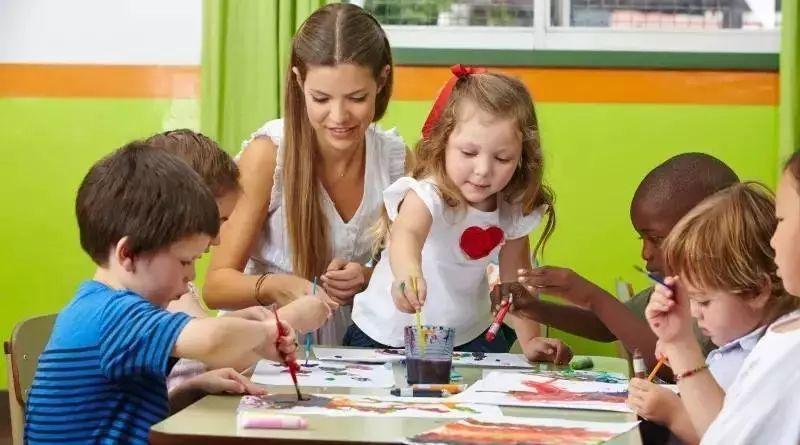
Freud's theory of personality development believes that childhood experience plays a vital role in the process of personality formation. In the theory of educational psychology, adequate love and proper satisfaction in a person's childhood will promote the smooth development of personality. Preschool education is the most important stage in cultivating children's mental maturity and independent personality.
The current situation of the semester education industry
The earliest introduction of the concept of preschool education can be traced back to the 19th century, while preschool education in China began in the early 20th century. In 1840, the originator of modern preschool education, the German educator Friedrich Froebel, founded the first preschool development model called “kindergarten”. After a century of development and change, China's preschool education has received full attention in the education industry and is in a stage of rapid development.
According to the "Overview of Education in China-The Development of Education in the Country in 2017" released by the Ministry of Education on October 18, 2018, there were 255,000 kindergartens in the country in 2017, an increase of 15,000 over the previous year. There are 160,000 private kindergartens, an increase of 6,169 over the previous year; 9.993 million children enrolled in the school, an increase of 342,000 over the previous year, an increase of 3.6%; 25.723 million children in the school, an increase of 1.347 million over the previous year, an increase of 5.5%, accounting for the whole country.The proportion of the total number of children in preschool education in the park reached 55.9%, an increase of 0.7 percentage points over the previous year. Although this number is so huge, it is still in short supply for Chinese private kindergartens as a whole.
With the implementation of the "Civil Promotion Law", private kindergartens have also formed strong competition with public parks and high-end parks with capital investment. At the same time, the new "Civil Promotion Law" stipulates that schools cannot choose for-profit schools in the compulsory education stage. Preschool education will become the first choice for capital to enter the field of private schools, and the private preschool education industry will also become the concentration of capital outbreak.
Starting from the successful listing of red, yellow and blue educational institutions on the New York Stock Exchange in 2017, the frequent major actions in the field of preschool education indicate that China's private preschool education market has good prospects for development. But at the same time, through the frequent incidents of problems in preschool education institutions, we can also see that preschool education is still a weak link in all kinds of education. The lack of educational resources and the uneven quality of teacher resources have all brought influence and constraints to the development of preschool education. As a result, industry development and regulatory issues have also received widespread attention.
So what are the mainstream concepts of preschool education in the international education industry? Which preschool education courses are used by international schools?
The world's mainstream preschool education curriculum system and concept
Montessori education was founded in the early 20th century by Maria Montessori, Italy's first female doctor of medicine. The Montessori pedagogy was created by the Italian educator Dr. Maria Montessori with her life's experience. The essence of its pedagogy lies in cultivating young children's conscious and active spirit of learning and exploration. In Montessori classrooms, there are a variety of teaching aids. They are all "toys" suitable for children's growth based on the sensitive period of children's growth and development. Montessori teaching content includes daily life education, sensory education, mathematics education, language education, science and culture education and other content. Children build a perfect personality through self-repeated Montessori teaching aids, and get a variety of ability training in free operation.
Montessori believes that children's sensory exercises are extremely important to children's understanding of things. She emphasizes that educators must trust children's inner and potential power to provide children with an appropriate environment for children to move freely. Montessori education methods are mainly divided into daily life education, sensory education, mathematics education, language education, science and culture education, emphasizing “teaching aids” teaching.
Since its promotion in the world, Montessori education has been highly respected and recognized by preschool education in various countries around the world, and it has spread to more than 110 countries and regions around the world. In China, there are also a number of international kindergartens and international schools that use Montessori courses in the preschool stage.
Legio Emilia is a city in northeast Italy. Since the 1960s, Loris Malaguzzi and local preschool education workers have established and developed a preschool education base there, forming a unique set of philosophical system,A complex of curriculum assumptions, school organizational structure methods, and environmental design principles. People call this complex the “Legio Emilia Education System.” The system is based on the teaching theory of “100 languages” and encourages students to actively ask questions, reflect, solve problems, make inferences, experiment and demonstrate research results.
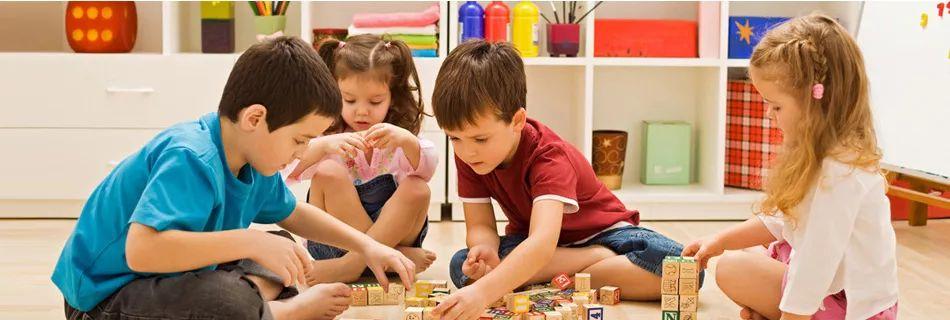
Picture from Legio's official website
Legio's main teaching theory is constructivism. Teachers have not prepared a good syllabus and lesson plans in advance. The curriculum is based on children's interests and experience. It focuses on relationships, that is, the relationship between people and things around them, and encourages educators to create opportunities for children to build their own language to communicate with people or things around them. The goal pursued is the happy, happy and healthy growth of children. Among them, initiative and creativity are regarded as the prerequisites and cores of happiness, happiness and health. It has distinctive and innovative philosophical concepts and educational propositions, as well as its own organizational methods and principles of environmental creation. It promotes the growth of children through a symbolic representation system, and encourages children to use a variety of “expressive, communicative, and cognitive languages” to explore the environment and express themselves.
The first Waldorf School was founded in Stuttgart, Germany in 1919. At that time, a German entrepreneur Emil Molt (Emil Molt) invited Rudolf Steiner to run a school for the children of his cigarette factory workers based on the research results of human intelligence, and named it Freie Waldorf Schule (German) after the factory's name Waldorf Astoria. This school was very successful and was well received by all walks of life. At that time, people believed that it was a model that represented the future of education. Later, all schools that practiced this educational philosophy were called Waldorf Schools, and they were also called Rudolf Steiner Schools.
Waldorf Education strives to transform students' experience from a single intellectual development to a "whole-person" education. Its syllabus is based on the understanding and understanding of the three important stages of development in the early stages of life. For children aged 0-7, Waldorf Education advocates that children learn through imitation, arguing that premature single intellectual development will overdraw the vitality that young children use to build their bodies and imitate, which is not conducive to the healthy physical and mental development of young children, and may even affect their physical condition in adulthood. Therefore, in Waldorf schools, the activities usually used are housework, role-playing, gardening and games, etc., in which children can learn valuable social and life skills.
The preschool education curriculum is known as a curriculum full of rational wisdom. It was originally developed by the American Institute of Advanced Study and began to affect our country in the late 1980s and early 1990s. This course is considered to be the most influential Piaget-style early education program in the world today. Its purpose is to promote the development of infants, preschool children, and adolescents all over the world, and to help children learn by training teachers and parents.
Gao Zhan's curriculum focuses on the active learning of young children, that is, the interests and choices of young children. Adults support the early development of young children by observing, understanding, and encouraging their behavior. Based on the interests of young children and the extension of their learning, adults also provide young children with a wide range of materials and planning experience. In the process of active learning, young children participate in direct and hands-on experiential activities related to people, things, ideas, and events. They practice their intentions by actively manipulating materials and interacting with peers and adults. Teachers design lesson plans around 58 key developmental indicators (KDIs) to improve the intelligence, physical strength, and social and emotional abilities of young children in their infancy.
The British Early education system (EYFS) is one of the world's authoritative standards for early childhood education. It is a pre-school education system proposed by the British government with the purpose of “giving parents the best choice and giving young children the best start”. This plan was officially incorporated into England's "Child Care Act" in September 2008.in.
EYFS is committed to providing a continuous development and learning system for all children from 0 to 5 years old, so that every child can become a healthy, safe, successful and happy person in the future. Its curriculum is mainly composed of pleasant and challenging games, emphasizing the participation of young children in activities, paying attention to the interests and achievements of young children, and developing the potential of young children in all directions with diverse and interrelated modules. EYFS will carry out purposeful curriculum settings for young children of different ages, so that young children can prepare how to learn, learn how to make friends and play, and be able to know their own needs and express their own ideas.
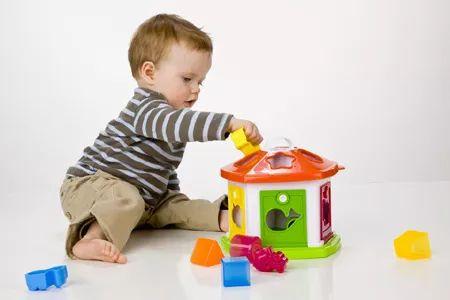
Picture from the internet
Friedrich Wilhelm August Fröbel (Friedrich Wilhelm August Fröbel) is a German educator, recognized as one of the most important educators in Europe in the 19th century, and the originator of modern preschool education.
Froebel believes that play is the inner instinct of children, especially the activity instinct. Therefore, the education of children should not be restrained or suppressed, nor should they be raised to help them grow, but should conform to their nature and meet their instinctive needs. In this way, the divinity contained in man will be gradually awakened and manifested in human nature.
According to the above points of view, Froebel believes that games and manual work should be the most important activities in early childhood, and the transfer of knowledge is only an additional part, interspersed among them. Kindergarten only needs to use spoken language in class, and there is no need to learn words. The most important responsibility of teachers is to properly guide and design various game activities.
Froebel's educational thought and practice have had a profound impact on the development of early childhood education in various countries around the world. At the end of the 19th century, Froebelism was formed in the United States, and its influence spread all over the world. His educational ideas have still had a profound impact on the development of early childhood education in various countries around the world.
DAP (developmentally appropriate practice), that is, developmentally appropriate practice, was formally proposed by the American Association for Early Childhood Education in 1986 as a national policy for early childhood education in the United States. The core concept of DAP education is suitability, which absorbs the essence of the other three major preschool education concepts-Montessori, Waldorf, and Froebel, and at the same time incorporates the needs of the new era of preschool education.
DAP emphasizes that there are three points to the suitability of early childhood education: consider age suitability, that is, education should be adapted to the age characteristics of children, including physical, emotional, social and cognitive; consider individual suitability, that is, education should be adapted to the characteristics of children, according to the personality characteristics of each child to understandIndividual differences; consider the suitability of social and cultural background, that is, every child enters the collective with his own cultural background. Teachers respect the differentiation of children's social and cultural background while taking all children's social background, language, and culture into account in the daily classroom design.
The theory of children's multi-intelligence education was proposed by Gardner, a famous educator at Harvard University in the United States. This educational theory divides human intelligence into 8 aspects, namely language intelligence, music intelligence, mathematical logic intelligence, spatial intelligence, physical movement intelligence, introspection intelligence, interpersonal intelligence and natural observation intelligence. Its theory pays more attention to the comprehensive development of children's intelligence. The theory points out that 0-7 years old is the critical stage of the development of various intelligence of young children. Whether the intelligence of young children develops comprehensively and in a balanced manner at this stage is directly related to the life of young children. Everyone has a different combination of intelligence. Through education, children's superior intelligence can be discovered, so that each child can be cultivated into a person with personality and suitable for the needs of future social development.
The theory of multiple intelligence believes that if children's intelligence strengths and weaknesses can be developed early, they can help children develop or make up for them moderately, and kindergartens can use such discoveries and understanding to design and arrange when, where, and what content and methods to help children.

Picture from the internet
Domestic preschool education has developed rapidly from its infancy to the present. In the international education industry, although there are many concepts and curriculum systems of preschool education, they are complex and complex, but what they have in common is to give children a complete and mature education to help children get a good physical and mental development and cultivation during the enlightenment period, and in the future canSuccessfully grow into a citizen of the world.
As the most important period of mental cultivation in a person's life, the preschool education stage has always been the focus of international education research and discussion. The fourth “2018 International School Development Conference" held by the new school opened a high-end forum with the theme of “Exploring the development model of Preschool Education”, and invited a number of international education experts to share their experiences.
This article is transferred from the WeChat public account "New Doctrine”, author Blair. The article is the author's independent point of view and does not represent the position of the author.
1. This article is a reprint of the article by , original text: New Doctrine;
2. Wasabi Pile does not accept the publication of inaccurate articles in any form such as public relations fees, car and horse fees, etc., and only presents valuable content to readers.;
3. If you are also engaged in education and want to be reported by Mustard Pile, please fill in the information and let us know.


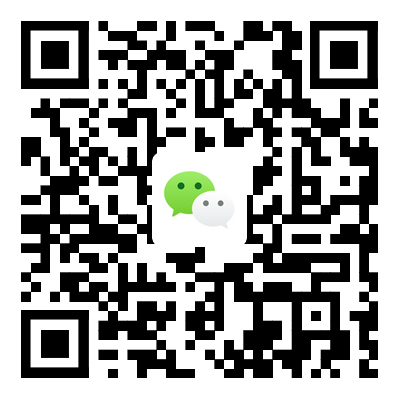

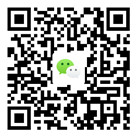
 Training institution management system
Training institution management system